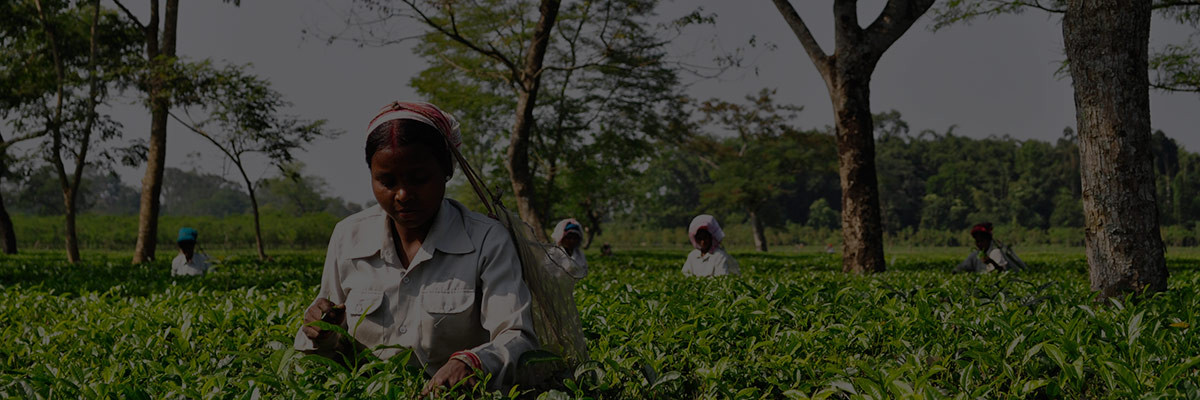
Climate change affects each of us differently, and its impact will be exacerbated for communities that already face underlying socioeconomic inequalities or injustices. For the private sector, climate injustice can be experienced across the value chain—from suppliers to employees and consumers. To advance climate justice, it is essential that the voices of those who are the most impacted are put at the forefront.
Below are several ways in which climate change can disproportionately and unjustly impact communities and where private-sector-solutions can be focused:
Building Resilience to Physical Climate Impacts
Individuals and communities are less able to prepare, respond, and recover from extreme weather events and the spread of disease if they lack access to financing, insurance, or healthcare, or if their rights are not protected. Consequently, women, people of color, Indigenous peoples, people with disabilities, children, and the elderly in under-resourced communities are often less able to adapt to climate impacts.
Business can ensure that all communities across the value chain are prepared, protected, and able to rebound, defined as building resilience. Conducting climate risk assessments is useful in identifying and understanding how climate change is affecting not only operations but also communities across the value chain. Companies can also use this as an opportunity to identify ways to increase access to their products and services—for example, medicines and technologies—to help build resilience equitably.
Ensuring a Just Energy Transition
Transitioning to a net-zero economy risks leaving behind workers and communities traditionally dependent on fossil fuel industries for jobs and livelihoods, including women who are underrepresented in the green jobs movement. Planning, dialogue, and engagement with workers and stakeholders is essential for a just transition—which aims to ensure social and economic opportunities of climate action are maximized and that fundamental labor principles and rights are upheld.
Several energy, utilities, and other related companies—that are deeply committed to achieving net-zero emissions in a manner that mitigates the potential adverse impacts on workers and communities—are coming together along with other stakeholders to collectively develop practical guidance on how companies can plan for, operationalize, and integrate just transition principles into their sustainability strategies and practices.
Upholding Human Rights in the Transition to Net Zero
In the transition to a net-zero economy, the development and procurement of decarbonization technology and renewable energy requires the mining of metals and minerals—for example, solar panels and ion batteries for electric vehicles. The extraction of many of these materials, as well as some of the practices used by companies, are associated with armed conflict, land and water grabs, violation of the rights of Indigenous peoples, the denial of workers’ rights to decent work and a living wage, and other human rights abuses.
As we transition our economies to reduce the impact of climate change, we can ensure business practices are just and uphold human rights. Business, therefore, has a responsibility to ensure that climate and net-zero strategies consider the social impacts of these transitions. An integrated climate change and human rights impact assessment can serve as a critical step in preventing and mitigating harm to people due to business activity.
Ensuring Equitable Access to Clean Energy
As we transition to a greener economy, we want to ensure all communities have access to clean energy technologies and solutions. For example, as companies set ambitious net-zero targets across their value chains, suppliers will need access to renewables to act on climate change and meet buyers’ expectations.
Not all markets have access to clean technologies or renewables in the electrical grid. Under-resourced communities are more likely to experience energy insecurity and lack access to affordable, efficient, secure, and reliable clean energy. Identifying where there are gaps in access across the value chain is an important first step to assessing what proactive actions companies can take—such as policy advocacy, financing, and coalition building—to counter inequities in access to clean energy. Adjustments to sourcing and procurement strategies and policies are also essential.
While many companies are just starting to explore issues connected to climate justice, others are taking different approaches to integrate a social lens into their climate action. Most recently, a cross-sector collaborative initiative, “Transform to Net Zero”, launched a transformation guide in which three companies shared their values and initial approaches to climate justice engagement.
Any transition to a more climate-resilient society will require deliberate engagement with a diverse array of stakeholders and affected communities, understanding the complexities and intersectionality of challenges and opportunities, as well as local capabilities, knowledge, and identified solutions.
Essentially, the communities that are least responsible for climate change, and least able to adapt and recover from its impacts, are the most affected. Business can acknowledge its role in contributing to climate change, and seek to counter past harm by supporting communities in building resilience as well as transitioning to net zero in a just and equitable manner. As such, climate justice goes beyond value chain resilience to acknowledge and leverage privilege, address injustices in society related to climate change impacts, and help under-resourced and underserved communities deal with climate change and climate-related transitions.
As companies increasingly commit to net-zero targets and invest in climate action, it is essential to emphasize the needs of the people and communities that are disproportionately affected in their ecosystems. Climate justice must be central to any corporate climate commitment or action plan, and listening, co-creating solutions, and elevating the voices of those most affected are paramount in advancing climate justice.
Topics
Let’s talk about how BSR can help you to transform your business and achieve your sustainability goals.









